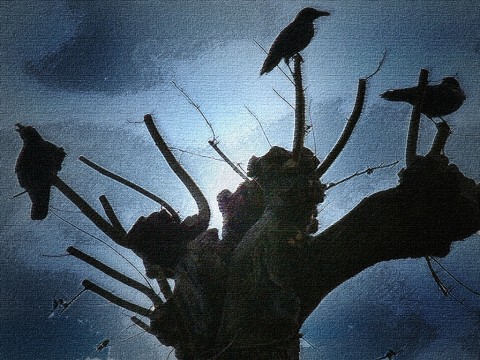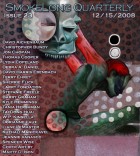We were looking at the remains of a broken well when my nose started to bleed. Fat, red drops crashed to the ground, kicking up tiny clouds of dust. At first I thought it was raining. Then Sathya handed me a scrap of paper and pointed to my face.
“You need something to drink,” he said, as I crumpled the paper against my nose. We walked through the village, passing rows of locked and shuttered houses that seemed to be sleeping in the dust. At the tea stall Sathya bought a warm bottle of 7Up and handed it to me with a great sense of accomplishment.
“Don’t use the straw,” he said.
“I know, I know,” I said, watching the sun shine fiercely through the grubby green bottle.
He flipped open his notebook and frowned at our list. Most of the villages we had visited so far were Dying or Dead, which technically meant the same thing. Sathya would cross out their names with a black marker and when he was done, he would touch my thigh or say ‘Well chellam?’ Once after visiting a village ravaged with HIV, he had crossed out its name like he was slicing it in two. Then he kissed my neck when he reached for the water bottle.
Today’s village was dotted with thin crows that clung to the trees like forgotten rags. Children sat in doorways, staring at us with bloated stomachs and open mouths. The cracks in the ground were thick and black, silently breaking the village into thousands of useless islands. Sathya brought out his marker, whistling tunelessly as he pulled off the cap.
“Something could still happen,” I said.
“Like what?”
“I don’t know. It could rain.”
“Really? You think so?” he said, crossing out the village’s name with a slow, straight line. I could still see the letters peeking through the black ink like thin, frozen ghosts.
“Anyway chellam,” he said, squeezing my arm. “That’s that.”
I silently repeated the word chellam to myself. It fluttered weakly, then disappeared somewhere inside my mouth.



 The core workshop of SmokeLong Fitness is all in writing, so you can take part from anywhere at anytime. We are excited about creating a supportive, consistent and structured environment for flash writers to work on their craft in a community. We are thrilled and proud to say that our workshop participants have won, placed, or been listed in every major flash competition. Community works.
The core workshop of SmokeLong Fitness is all in writing, so you can take part from anywhere at anytime. We are excited about creating a supportive, consistent and structured environment for flash writers to work on their craft in a community. We are thrilled and proud to say that our workshop participants have won, placed, or been listed in every major flash competition. Community works.